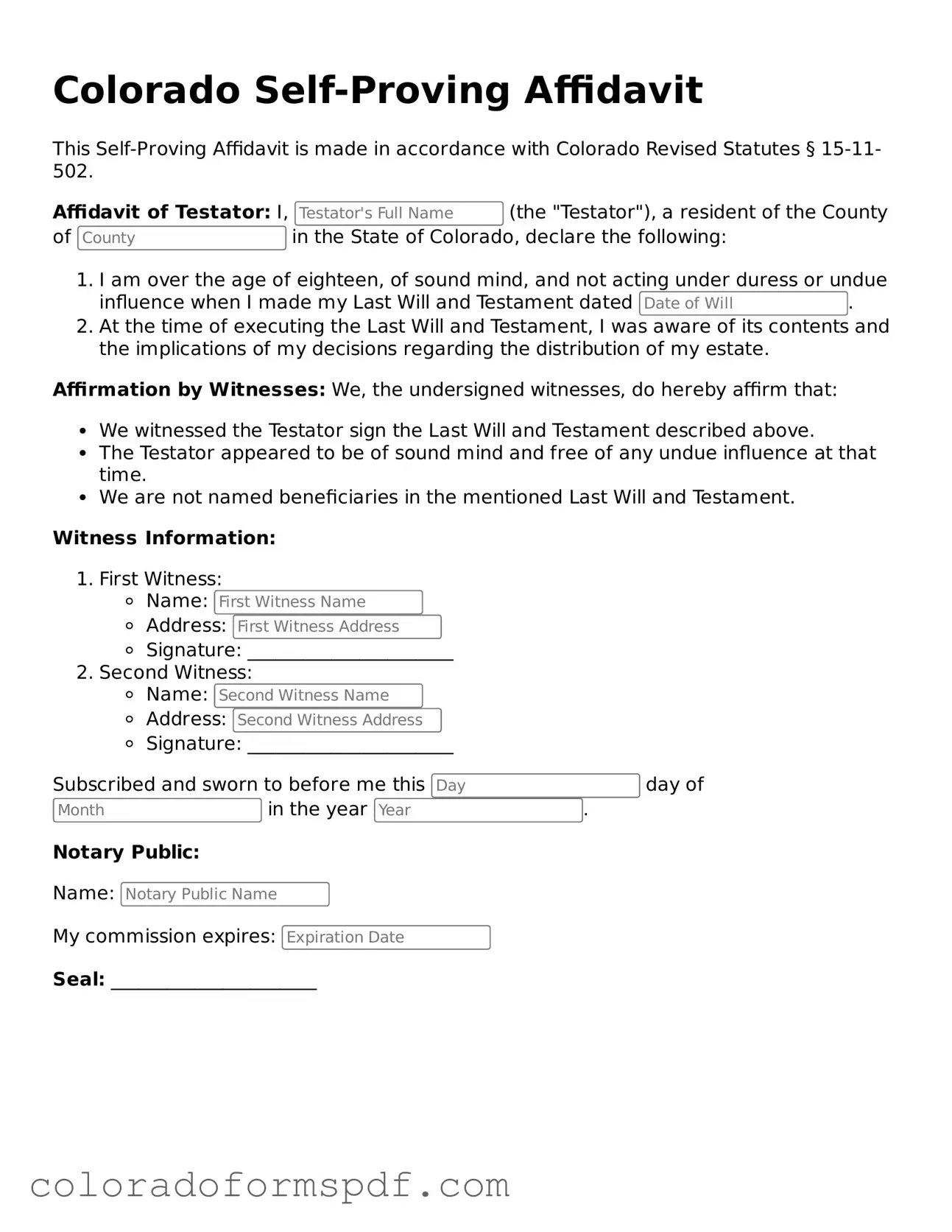Official Self-Proving Affidavit Template for Colorado State
The Colorado Self-Proving Affidavit is a legal document that allows a testator's will to be validated without the need for witnesses to testify in court. This form streamlines the probate process by confirming the authenticity of the will at the time of its signing. By utilizing this affidavit, individuals can ensure that their final wishes are honored efficiently and effectively.
Get Document Online

Official Self-Proving Affidavit Template for Colorado State
Get Document Online

Get Document Online
or
Download PDF
Quick form completion starts here
Edit and finish your Self-Proving Affidavit online, then download.